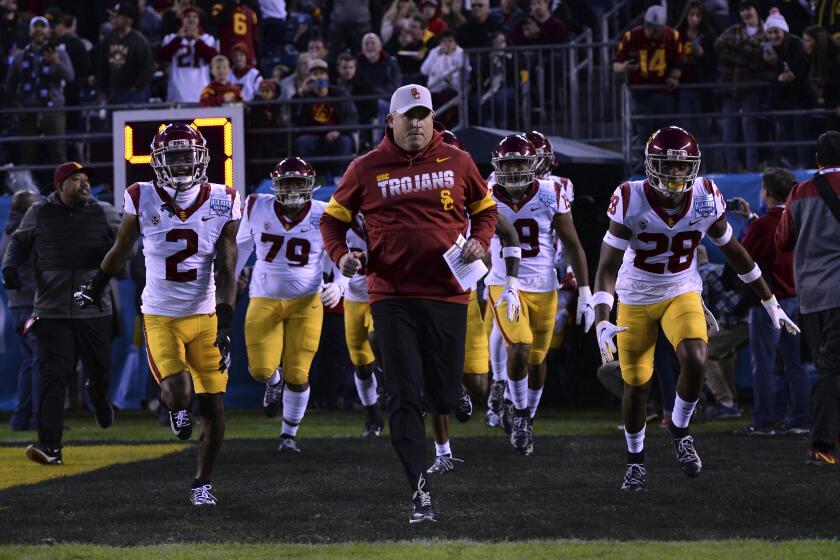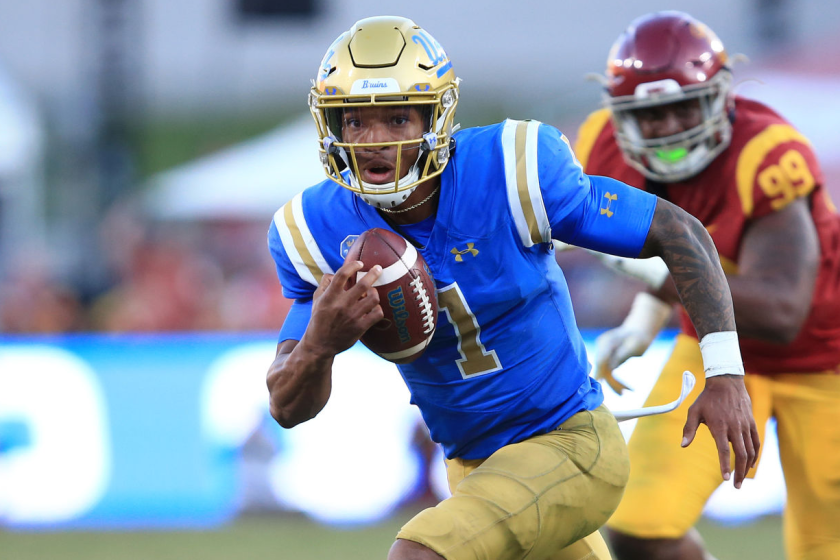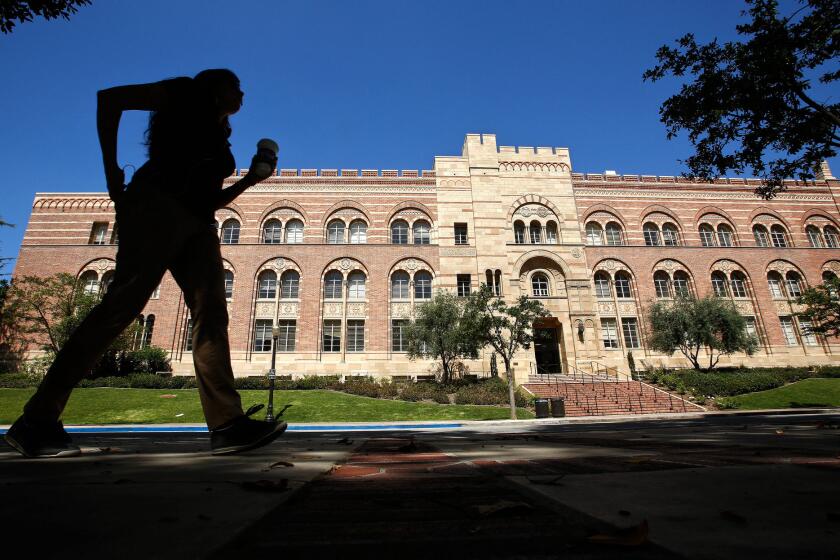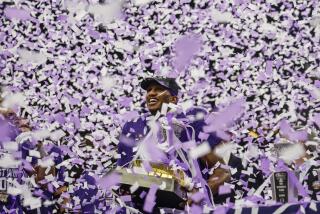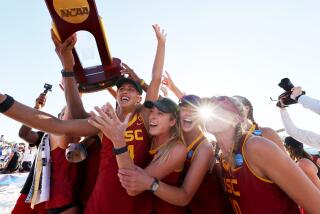Pac-12 votes to have seven-game football season beginning in November
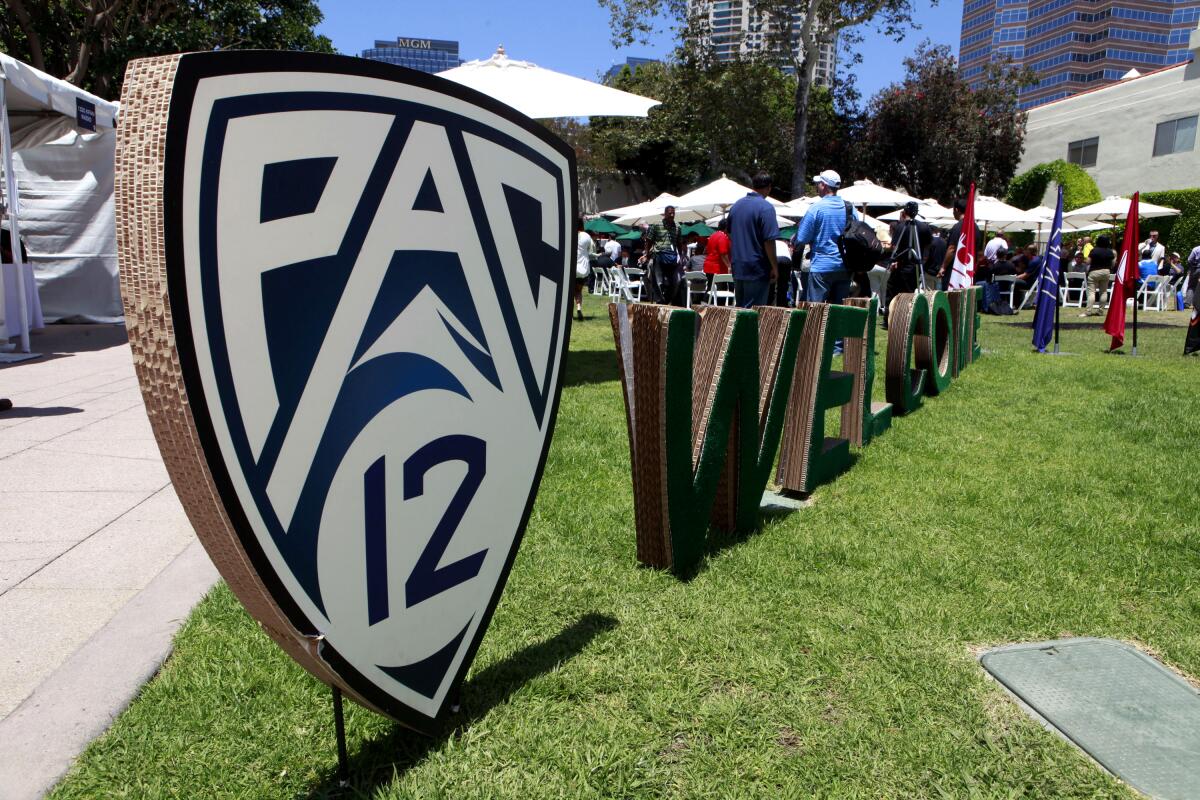
- Share via
The proper testing was secured, and the runway to fall football had been cleared for takeoff by another group of formerly hesitant university presidents just one week earlier. But the Pac-12’s “CEO Group” still had to meet Thursday afternoon for a vote to restart its season in 2020 and join the chase for a national championship.
As was expected since the Big Ten became the first conference to reverse a postponement decision due to coronavirus concerns, the Pac-12 presidents unanimously voted to return to play, too. If all goes according to plan — which, of course, it may not — the league will kick off Nov. 6 and play a seven-game season that culminates with the Pac-12 championship Dec. 18 and five other cross-division matchups that weekend.
Oregon president Michael Schill, who chaired the group, said they spent the meeting weighing the benefits of playing in the fall instead of the winter. The one that mattered most, he said, was having the ability through improved safety measures to give athletes something “they had been deprived of.”
“This is something that they dream of, this is something that they want for their future,” Schill said during a virtual news conference. “COVID-19 has taken so much away from these students. I didn’t want to take this away from them.”
Schill said the presidents did not decide when they met last Friday so they could return to their campuses and have further conversations with athletes and faculty.
Here are five questions facing USC as the Trojans prepare to start a delayed and shortened college football season.
Thursday, he went out of his way to debunk what he believed to be a popularly held opinion regarding the conference’s motive in playing college football with during a pandemic that has closed many classrooms to in-person learning.
“Let me just say one thing it was not about,” Schill said. “This has nothing to do with money. It was never once mentioned as a consideration. The losses that schools are encountering and in particular our athletic departments are huge. The amount of money that will be paid as a result of going back to play is tiny in comparison with the losses. It had no effect on our decision.”
By playing in the fall, the Pac-12 will receive a $66 million payout from the College Football Playoff. Having a team play in a New Year’s Six bowl game will add another $4 million. In 2018-19, the Pac-12 distributed $32 million to its schools as part of its media rights deal with ESPN and FOX. With less game inventory in a shortened season, it’s likely the league and its partners would settle on a prorated amount for 2020-21.
“We’re all very humbly going into the season realizing there could be disruptions. We’ve seen that play out over a few weeks. “
— Larry Scott, Pac-12 Conference commissioner
Sitting out the fall season, particularly once the Big Ten joined back in, only would have furthered the perception that the “Conference of Champions” wasn’t as committed to competing for football hardware as its Power Five brethren.
The Pac-12 hasn’t had a team in the four-team CFP since Washington in 2016, but Pac-12 commissioner Larry Scott insisted Thursday that his league will now be under consideration in 2020, even with a seven-game slate while others attempt to play nine to 11.
“There’s no minimum number of games [to be considered],” Scott said. “We’re all very humbly going into the season realizing there could be disruptions. We’ve seen that play out over a few weeks. Nobody knows how many games they’re going to get in. It’s going to be a challenge for the committee.”
The Big Ten and Pac-12 are the lone conferences to have secured daily antigen testing, yet the Atlantic Coast Conference, Big 12 Conference and Southeastern Conference, which kicks off Saturday, never wavered on playing. The Pac-12’s hope is that being able to test players and staff each day will mitigate the risk of outbreaks and lead to more manageable contact tracing when there is a positive case.
Here are five questions facing UCLA as the Bruins prepare to start a delayed football season.
Given the number of games that have been postponed thus far — Houston, for instance, has had a game postponed or canceled all four weeks — the Pac-12 may not be too far behind the rest of the country by mid-December.
“I believe the Pac-12 took a more measured approach, a more unified, strategic approach than anyone else in the country,” USC athletic director Mike Bohn said in a virtual news conference Thursday.
“I’m not judging anyone because, as you know, everyone is experiencing this COVID-19 pandemic in a different way. … LSU’s coach [Ed Orgeron] is talking about how he thinks everyone on his team has had it. That gives you an idea of what their experience is like versus what ours is like. I’m not judging LSU, but that’s a different environment, a different culture.”
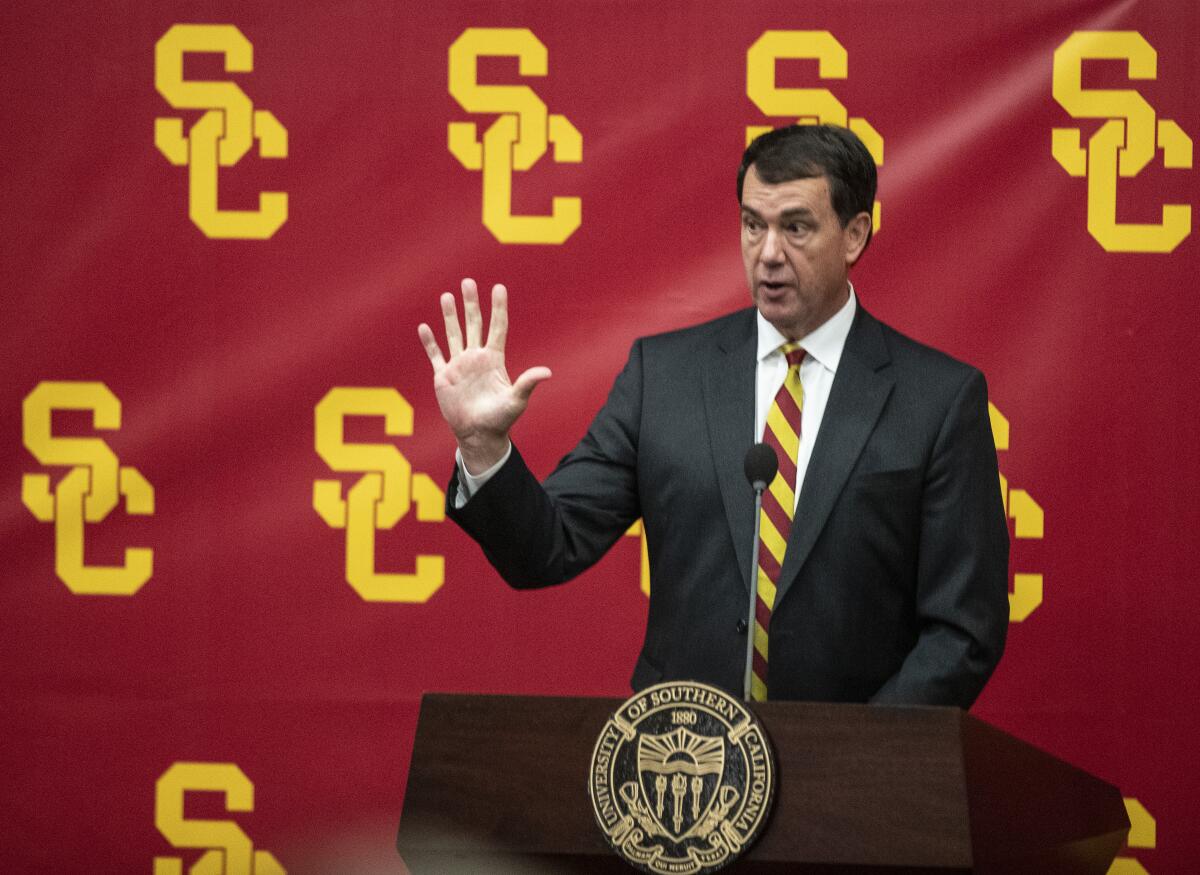
Bohn applauded the Pac-12’s Medical Advisory Board for keeping a high standard for the “safety piece.” When the league postponed in August, it stated that it needed improvement in testing capacity, stabilization in the COVID-19 data in many of its locales and a better understanding of myocarditis, an inflammation of the heart that has been linked to COVID-19.
The testing was acquired through a deal with Quidel Corporation, which is currently training school staff on how to accurately and efficiently perform the testing.
Doug Aukerman, the chair of the Pac-12 medical group, said the testing should serve to limit the potential exposure of players to myocarditis. Schools will also be set up to screen for the condition when a player tests positive.
The virus remains plenty active throughout the Pac-12 footprint, but some state and county public health officials have expressed willingness to adjust regulations on group size to accommodate the Pac-12. Bohn said USC has “some work to do there” and that “I don’t anticipate us actually being on the practice field as a team until early October.”
An audit of University of California admissions found 22 students were inappropriately admitted as athletes. The real number is probably higher.
On Thursday, Boulder (Colo.) County announced an order that prohibits college-aged kids from gathering for the next two weeks, forcing Colorado to shut down workouts during that span.
Scott said the league picked Nov. 6 as its start date because it hoped to give teams six weeks of practice. The Pac-12 also gave clearance for men’s and women’s basketball to start playing games Nov. 25, the NCAA-approved date.
“We’re moving forward now,” Schill said, “but we’re not moving forward with our eyes shut. We’re going to be paying attention to what’s happening. And if we start getting spikes that suggest this is not sustainable, we will just stop playing. Because again, the value is the health and safety of our players and our communities.”
Ryan Kartje contributed to this report.
More to Read
Go beyond the scoreboard
Get the latest on L.A.'s teams in the daily Sports Report newsletter.
You may occasionally receive promotional content from the Los Angeles Times.

